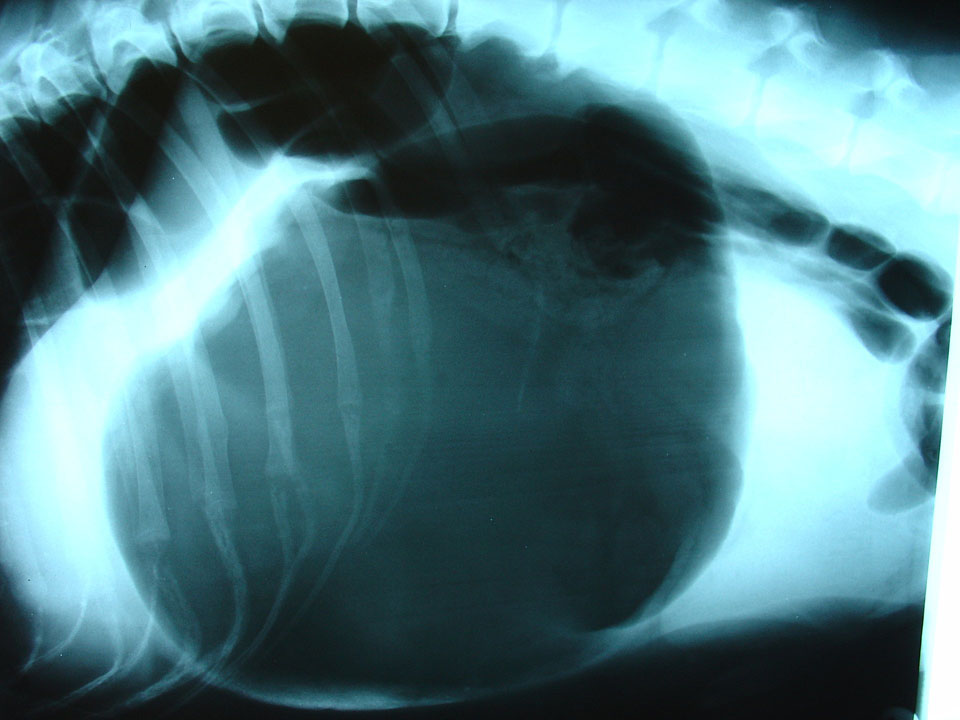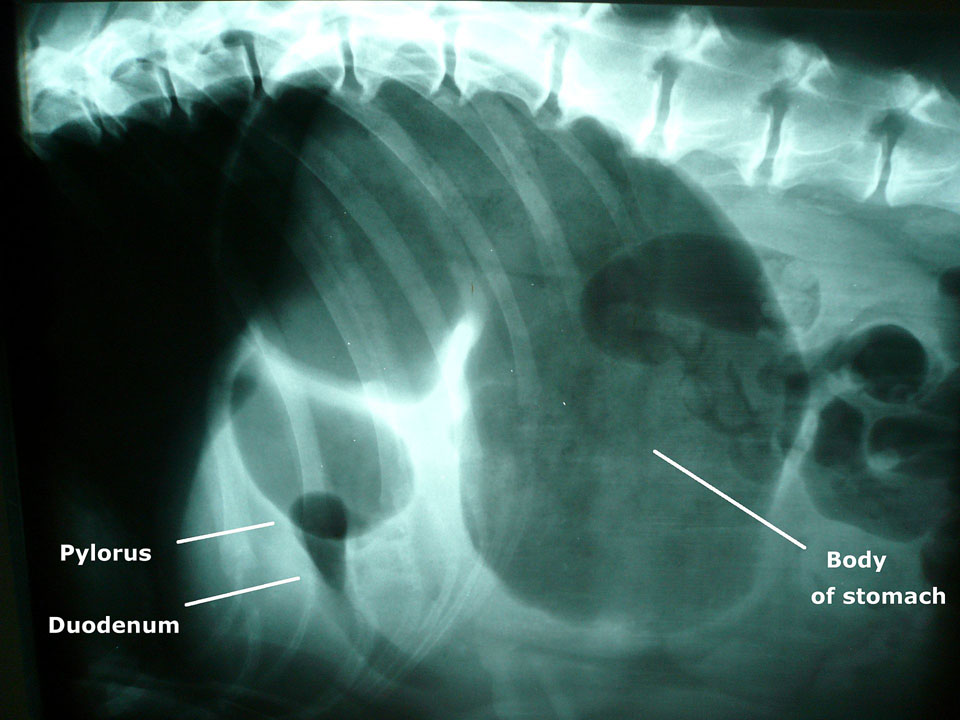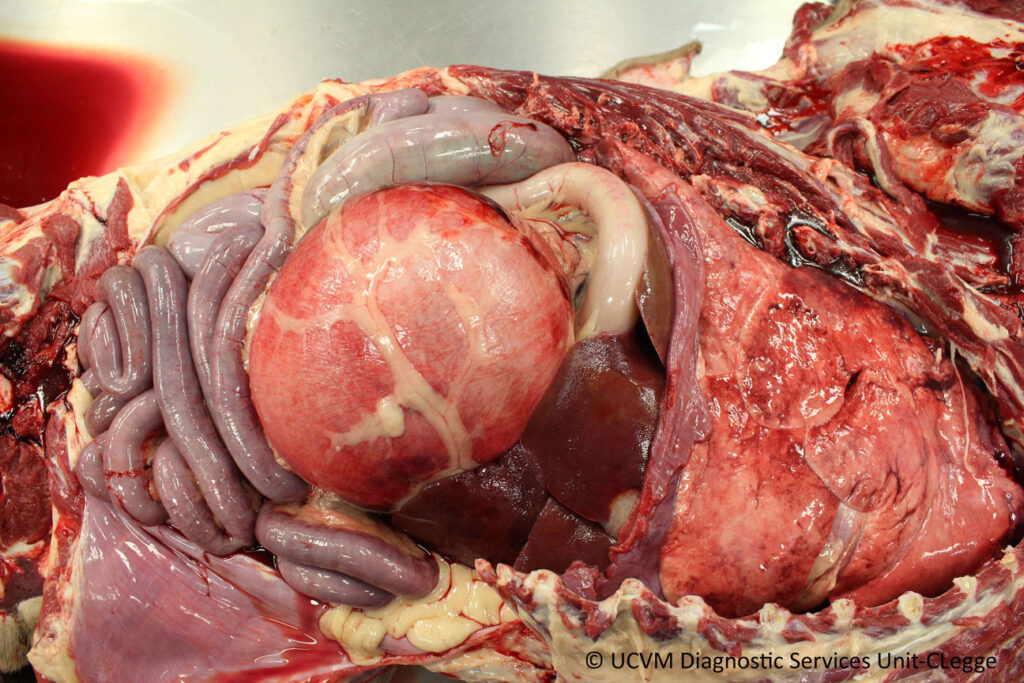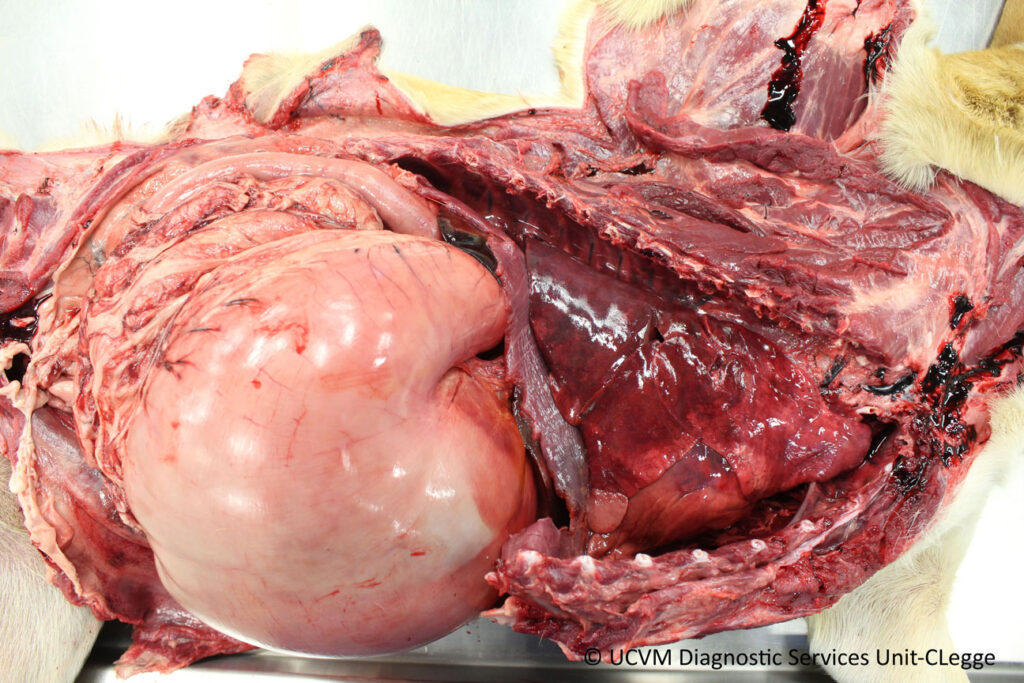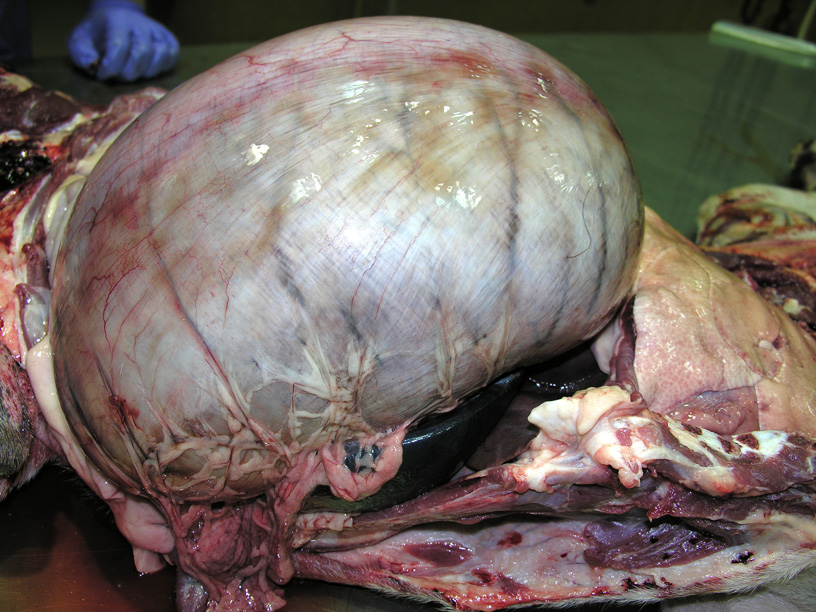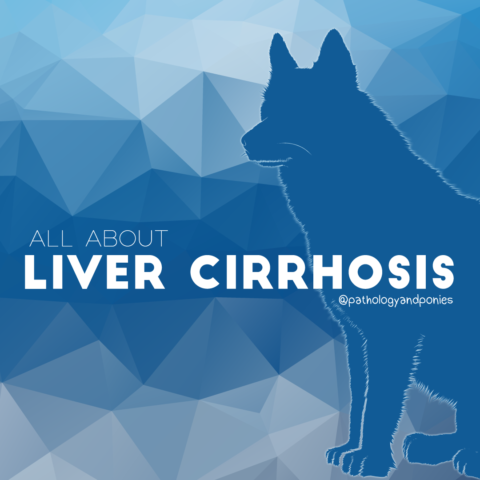Today’s path rounds are on 𝐠𝐚𝐬𝐭𝐫𝐢𝐜 𝐝𝐢𝐥𝐚𝐭𝐢𝐨𝐧 𝐚𝐧𝐝 𝐯𝐨𝐥𝐯𝐮𝐥𝐮𝐬 (GDV), or “bloat”!
𝐖𝐡𝐚𝐭 𝐢𝐬 𝐢𝐭?
GDV is a common issue in dogs, and involves two components: dilation of the stomach with gas, then flipping of the stomach within the abdomen. Sometimes the spleen can get involved in the rotation as well, thanks to its attachment to the stomach.
𝐖𝐡𝐨 𝐠𝐞𝐭𝐬 𝐢𝐭?
This condition is most common in dogs, particularly deep-chested dogs like Great Danes, St. Bernards, Wolfhounds and Bloodhounds.
𝐖𝐡𝐚𝐭 𝐜𝐚𝐮𝐬𝐞𝐬 𝐢𝐭?
It’s not 100% certain what causes GVD, however several predisposing factors have been identified. For example, having a diet composed of small food particles, having a raised food bowl, stress at meal time, being kennelled or even having nasal mites may be predisposing factors for this condition. All of these conditions may cause 𝐚𝐞𝐫𝐨𝐩𝐡𝐚𝐠𝐢𝐚 (ingestion of air), thus leading to the dilation.
𝐖𝐡𝐲 𝐢𝐬 𝐭𝐡𝐢𝐬 𝐚 𝐩𝐫𝐨𝐛𝐥𝐞𝐦?
Aerophagia leads to the stomach becoming enlarged, which can have some severe consequences. The enlarged stomach may block blood flow to the spleen, leading to 𝐢𝐧𝐟𝐚𝐫𝐜𝐭𝐢𝐨𝐧 (death of tissue).
As the stomach enlarges, it may also rotate (𝐯𝐨𝐥𝐯𝐮𝐥𝐮𝐬). This can compress the esophagus, and prevent the animal from burping up the trapped gas. Thus, the stomach stays dilated, and the blood flow to the stomach is restricted, causing similar infarction in the stomach wall. If left untreated, the stomach can become so 𝐧𝐞𝐜𝐫𝐨𝐭𝐢𝐜 (dead tissue) that it eventually ruptures. The enlarged stomach can also push on the 𝐜𝐚𝐮𝐝𝐚𝐥 𝐯𝐞𝐧𝐚 𝐜𝐚𝐯𝐚 (major vein draining back to the heart), causing cardiac arrhythmias and inadequate blood flow in the body.
𝐇𝐨𝐰 𝐢𝐬 𝐢𝐭 𝐝𝐢𝐚𝐠𝐧𝐨𝐬𝐞𝐝?
Usually the veterinarian will have a suspicion of GDV based on the dog being restless, having an enlarged abdomen and even signs of shock like increased heart rate and pale mucous membranes. Based on this, the veterinarian will take an X-ray, which will reveal an enlarged, gas-filled stomach. If there is volvulus involved, the stomach forms a “Popeye arm” or “Smurf’s hat” shape which is characteristic of the disease.
𝐇𝐨𝐰 𝐢𝐬 𝐢𝐭 𝐭𝐫𝐞𝐚𝐭𝐞𝐝?
First, the patient must be stabilized by 𝐠𝐚𝐬𝐭𝐫𝐢𝐜 𝐝𝐞𝐜𝐨𝐦𝐩𝐫𝐞𝐬𝐬𝐢𝐨𝐧. In this procedure, the veterinarian can try to pass a tube into the stomach, to release some of the gas accumulation. Sometimes if this doesn’t work, then the veterinarian can place a needle through the body wall into the stomach allowing the gas to be released.
From there, the dog must be taken to surgery to untwist the stomach and return it to its normal position. Usually the veterinarian will do a 𝐠𝐚𝐬𝐭𝐫𝐨𝐩𝐞𝐱𝐲 as part of this procedure, which is where the stomach is sutured to the body wall to prevent another GDV.
𝐏𝐡𝐨𝐭𝐨𝐬
1-2) X-rays showing the “smurf hat” or “Popeye arm” from GDV.
3-5) Various examples of GDV as seen at necropsy.
𝐒𝐨𝐮𝐫𝐜𝐞𝐬
Maxie, G. Jubb, Kennedy and Palmer’s Pathology of Domestic Animals, Volume 2. Sixth Edition.
Photos 1-2 courtesy of Wikimedia Commons.
Photos 3-4 courtesy of University of Calgary Diagnostic Services Unit.
Photo 5 courtesy of Noah’s Arkive.

